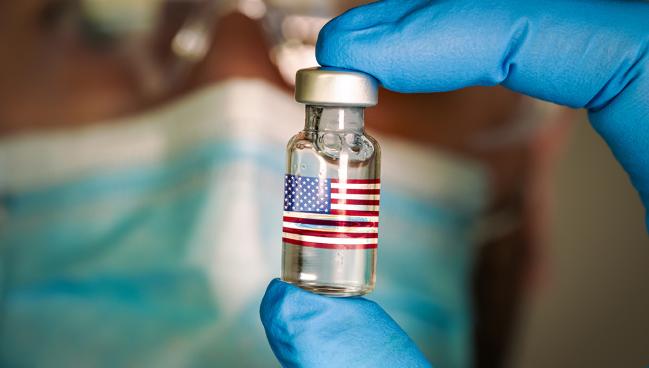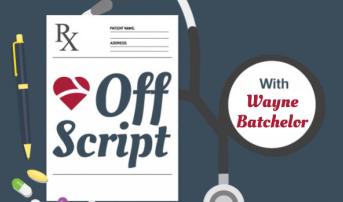Early Actions by Trump Administration Sow Uncertainty for CV Research
The immediate impact for the medical sciences is unclear, but the symbolism is “very chilling,” one commentator says.

When Donald Trump regained the US presidency last week, he quickly began rolling out executive orders on a wide range of issues, including directives aimed at federal scientific agencies such as the US National Institutes of Health (NIH).
One of the imposed restrictions was the temporary stoppage of grant review panels that determine which research projects get funding, as reported by The Scientist.
The Trump administration’s Office of Management and Budget (OMB) also froze certain federal funding for grants and other programs, although that plan was soon temporarily blocked by a federal judge before the memo announcing the plan was rescinded on Wednesday, NPR reports. Nonetheless, Karoline Leavitt, White House press secretary, said on X: “This is NOT a rescission of the federal funding freeze.”
What the ultimate result of these efforts will be and what impact, if any, they will have on cardiovascular research remain unclear, but some effects are being felt already, suggested Chandan Devireddy, MD (Emory University, Atlanta, GA).
“The sentiment in talking to partners and colleagues throughout multiple institutions is that the symbolism of this is very chilling,” he told TCTMD. “A lot of investigators are very afraid right now, in that this is truly without precedent—how this [presidential] transition handled the nation’s scientists, and medical scientists in particular.”
Devireddy, who noted that he does not receive any direct funding from the NIH, acknowledged that priorities are going to differ across presidential administrations. But, he said, “for any group to truly win hearts and minds and to be effective in succeeding in their policy priorities, they would know how to work with a system to get the best results. That’s true for business. It’s true for governments. It’s true for science.”
These actions early on in Trump’s term raise concerns about how his administration is going to handle science and health policy, Devireddy said.
“Are they going to be able to do it in a way that meets the needs of health problems that our country’s citizens have and will have? Are they going to be able to do it in a way that is efficient and makes the best use of taxpayer dollars? And are they going to do it in a way that attracts the best and the brightest to continue revolutions in medical science that have been enabled through centers like NIH and [the National Heart, Lung, and Blood Institute]?”
Those two agencies have provided funding for influential trials that probably never would have been funded by private industry, he pointed out, citing, for example, the EAST trial comparing angioplasty and CABG in patients with multivessel coronary disease and the SPRINT trial evaluating intensive blood pressure control. Cardiovascular scientists at the NIH have been involved in the development of certain TAVI techniques, including transcaval access and leaflet laceration through BASILICA, he added.
There’s no question that any freeze that is more than just a fleeting thing is going to have both serious short-term as well as long-term consequences on federally funded cardiovascular—and all—research. David Cohen
Adrian Hernandez, MD (Duke University School of Medicine, Durham, NC), who is executive director of the Duke Clinical Research Institute, said he hasn’t heard anything directly about how the recent executive orders might affect his own group’s operations.
But if the NIH grant review panel meetings are even temporarily halted, “obviously there are delays in decisions for funding of cardiovascular research programs . . . and then that can have a greater extension in terms of how long it takes to get scheduled and when those programs would actually be funded and move forward,” he told TCTMD. “And that goes across the space from discovery to clinical science. So it can have a profound impact, especially when there’s no disagreement that cardiovascular health is an important area to address.”
David Cohen, MD (St. Francis Hospital & Heart Center, Roslyn, NY, and Cardiovascular Research Foundation, New York, NY), too, reflected on the potential disruptive effects of these executive orders. He told TCTMD there could be an immediate impact felt if federally funded research comes to a halt due to a lack of money coming in. “Whether it’s basic science or animal research or clinical trials, all of those things depend on the flow of money from the government to the institutions and then to the PIs and their staff, so that would be incredibly disruptive.”
And over the longer term, these moves by the administration could dissuade people from going into research that requires federal funding, “because of the uncertainty that this throws into the entire career path. I think people would try to find other things to do with their talents,” Cohen said. “So there’s no question that any freeze that is more than just a fleeting thing is going to have both serious short-term as well as long-term consequences on federally funded cardiovascular—and all—research.”
Seeking Efficiency Without Disruption
On its face, a focus on greater efficiency may yield some positives, although a wide-scale pause before continuing may not be the best way to do it and “can be very disruptive,” Hernandez said. “There’s a lot of interest and appetite for streamlining the research process and the ecosystem and improving that, but that certainly could be done in parallel, not stopping progress and delaying progress while reforming how the ecosystem works.”
Indeed, Devireddy said, “it’s a reasonable request for any citizen, patient, administrator to feel that the public funds of our nation are handled appropriately, with good financial stewardship. But to me, just as if a new CEO is hired for a company or a new corporate board member is brought in, it’s not often I feel—and I could be wrong on this—that companies just completely blow up their mission statements and halt their ongoing business operations.”
You’ve potentially lost that bright mind forever in terms of what their potential could have been for medical innovation. And that affects all of us. Chandan Devireddy
The situation around these moves is changing by the minute, and it’s unclear what might happen in the coming weeks. “But actions have consequences,” Devireddy said. “And even if brief, there’s a lot of symbolism in these actions.”
Agreeing with Cohen, he said that, ultimately, the uncertainty around how this administration views scientific and medical research could influence the ability to recruit top minds to participate in federally funded research.
“They may pursue other careers that are financially more lucrative and have more stability without having to worry about whether one politician one year and another politician another year is going to cut out their funding or identify them as a group that needs to be singled out,” he said. “And then you’ve potentially lost that bright mind forever in terms of what their potential could have been for medical innovation. And that affects all of us.”
For now, Hernandez said, “We continue to work on the research programs and meet the mission of addressing cardiovascular health. The problems don’t change. How we get there doesn’t change in generating better evidence. And we await future announcements from [the Department of Health & Human Services] or NIH in terms of opportunities to improve cardiovascular health.”
He added, “The main thing is that a lot of these announcements are very general and broad in nature. And so it is hard to understand what the potential impact is for any area or what may open up as an opportunity to improve cardiovascular health.”
Overall, Cohen said, “the uncertainty of all of it really is the most important factor. We’ve come to rely on our federal government and not being able to trust it to fulfill its promises is really very disruptive.”
The medical research system is “already fairly precarious,” he added. “People have worked their lives to get federal grants. They’re among the most prestigious you can get; they’re very competitive. And then to have that all potentially taken away in a heartbeat really is going to have a lasting effect beyond the specific project from which the funds are withheld.”
Todd Neale is the Associate News Editor for TCTMD and a Senior Medical Journalist. He got his start in journalism at …
Read Full BioDisclosures
- Hernandez has received grants from the NIH and reports relationships with Boehringer Ingelheim, Boston Scientific, Bristol Myers Squibb, Cytokinetics, Eidos Therapeutics, GlaxoSmithKline, Intellia, Intercept, MyoKardia, Novartis, Novo Nordisk, Prolaio, and TikkunLev Therapeutics.
- Devireddy reports receiving consulting fees from Medtronic and Recor Medical. His institution receives NIH funding and he participates in some of the funded trials as a sub-investigator.






Comments